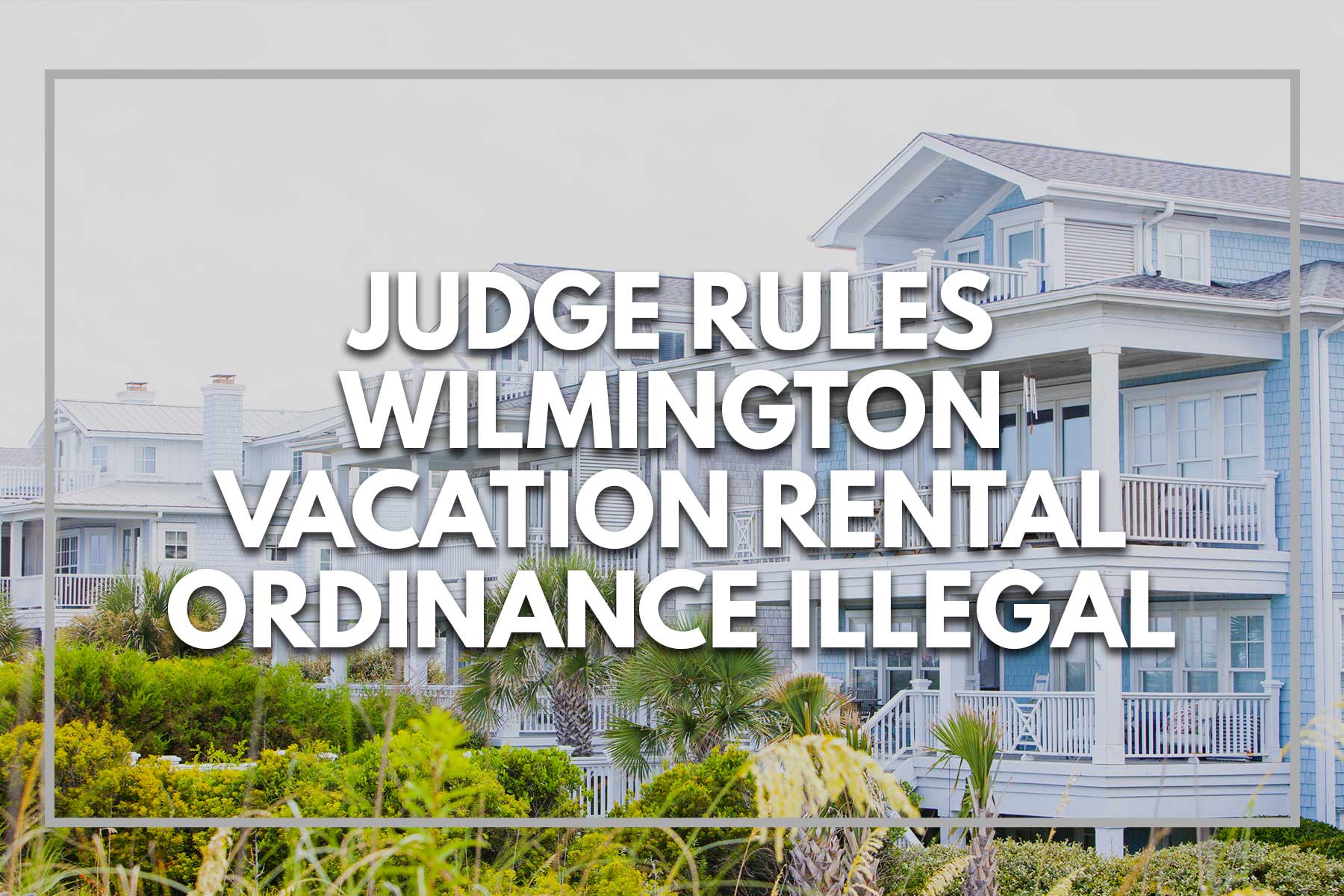By Attorney Jillian C.S. Blanchard
Wilmington is a sought-after vacation destination but maintaining a secondary residence is expensive. Over the years, many homeowners have opted to utilize their secondary residences as vacation rentals, providing a financially feasible way to maintain a secondary residence in Wilmington without breaking the bank.
Over the past few years, we’ve seen an increased demand for short-term vacation rentals. In 2016, companies such as Airbnb, HomeAway, and VRBO began to pop up around Wilmington, and city staff quickly realized that short-term vacation rentals were not covered by Wilmington’s land development code. Thus, the City of Wilmington sought to change this.
The debate over the proposed regulations and restrictions on vacation rentals brought hundreds of citizens to over two dozen public meetings. Individuals in favor of short-term rentals argued that they are good for the local economy, providing an easy way for homeowners to obtain additional income, while also providing tourists with additional lodging options. Others in opposition to short-term vacation rentals argued that they disrupt the integrity of single-family residential neighborhoods and the character of the local historic district.
After years of debate, on February 5, 2019, the proposed regulations and restrictions on vacation rentals in Wilmington passed in a split decision from the Wilmington City Council. The ordinance that went into effect in 2019 imposes a 2% overall cap on vacation-rental properties within the City and requires a 400-foot separation between individual “whole-house” vacation rentals in residential districts (homes rented out without a homeowner on-site). The ordinance requires individuals to register their vacation rental property with the City of Wilmington annually, and subjects whole-house rentals in residential districts to a lottery system. Those who lost the lottery were given a one-year grace period to continue operating, but at the end of that year, they were be forced to indefinitely relinquish their renting rights.
One couple affected by the ordinance, David and Peg Schroeder, purchased a townhome in Wilmington that they intended to offer as a vacation rental prior to the enactment of the ordinance. Without the expected rental income, the Schroeders could not afford to keep their secondary residence. After the ordinance went into effect, the Schroeders entered and ultimately lost the lottery, leaving them with two options: sell their secondary residence or challenge the city’s ordinance in court.
In October 2019, the Schroeders filed a lawsuit against the City of Wilmington challenging the ordinance. On September 16, 2020, North Carolina Superior Court Judge Richard K. Harrel ruled Wilmington’s vacation rental ordinance to be illegal, violating a statewide law prohibiting municipalities from requiring rental permits. According to the trial court ruling, the city exceeded the scope of its authority by requiring homeowners to register their rental property with the City of Wilmington before being able to offer their homes as vacation rentals. This decision comes as a victory for the Schroeders and the property rights of homeowners across North Carolina.
In response to the ruling, the Wilmington City Council intends to work with the City Attorney’s Office to review the ruling and consider an appropriate path moving forward. Council is expected to meet as early as October 5th. Read more here.







